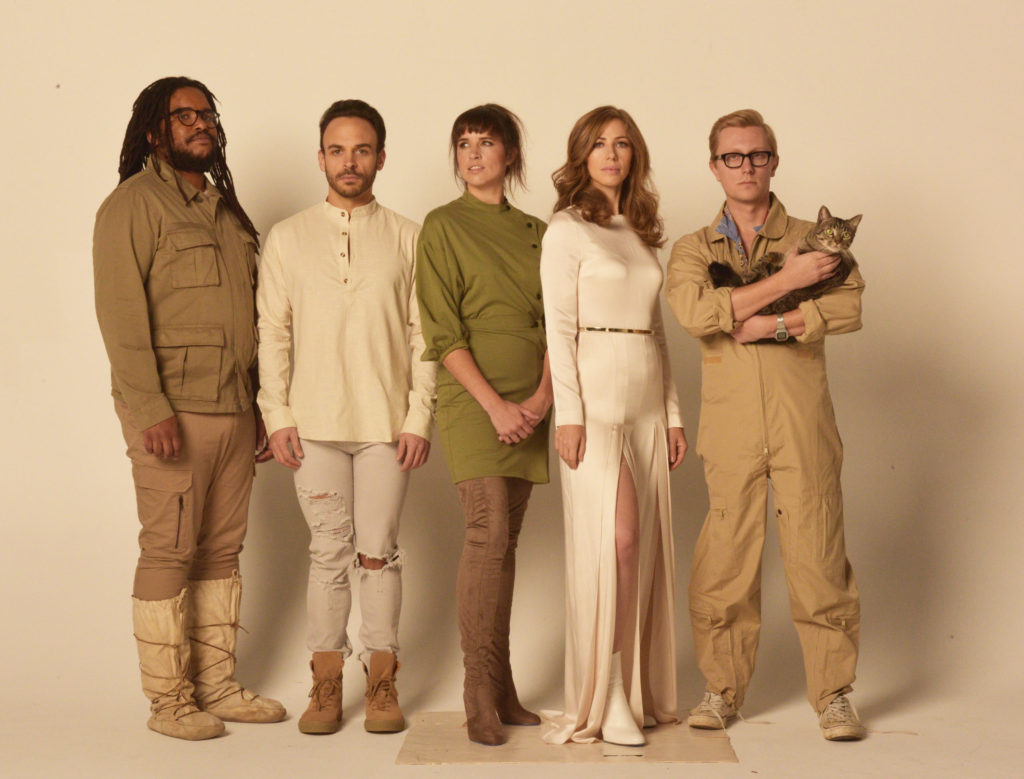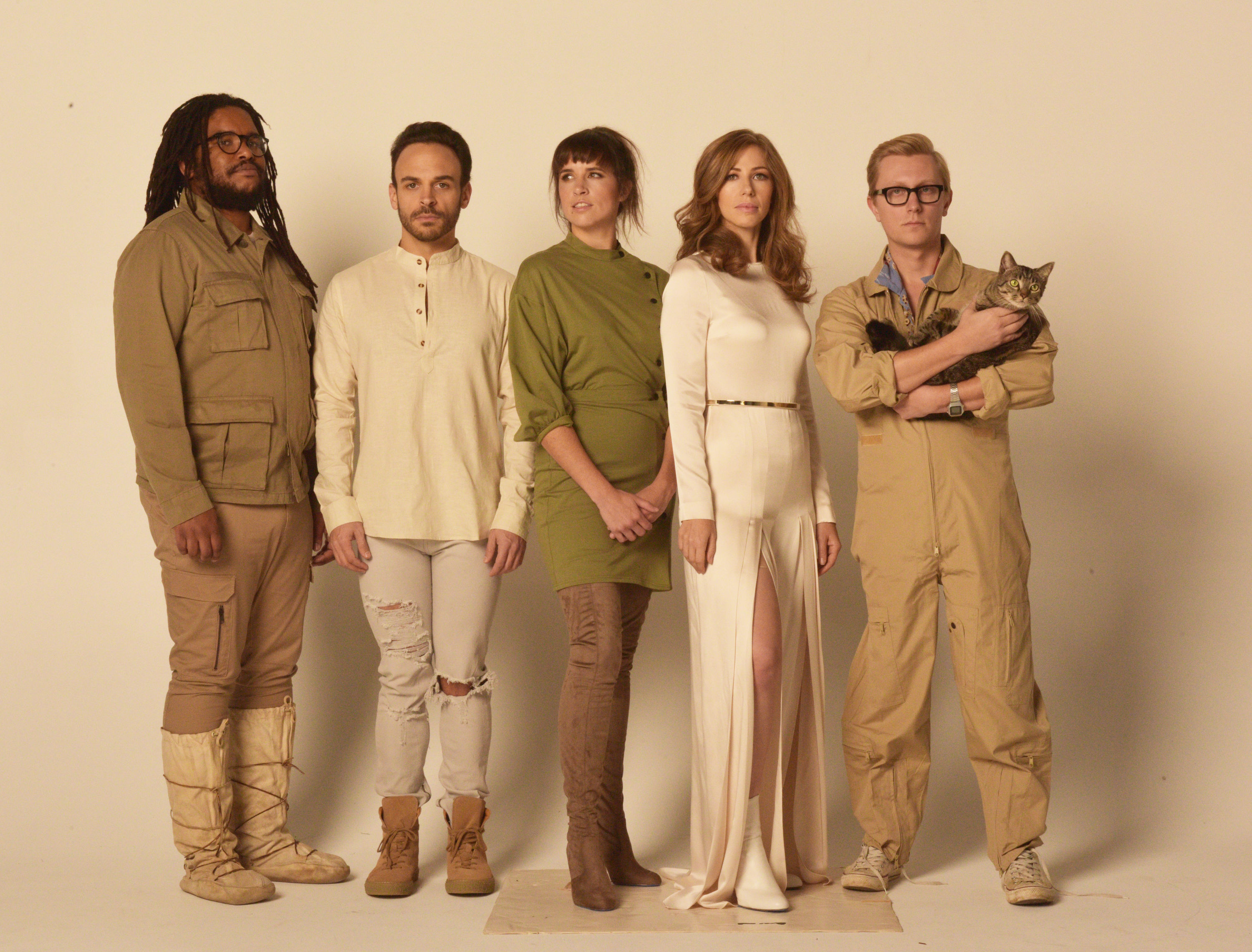
By Jim Morrison
That evolution from a band with a small, devoted following that fills clubs to one that headlines festivals and lands on a major label is a tricky navigation.
Just ask Lake Street Dive. The group of conservatory friends transformed in a couple of short years from playing Norfolk’s Taphouse and 80/20 Burger Bar to one headlining The NorVa and Funhouse Fest. They went from being a critical darling on tiny New England label Signature Sounds with label mates like Kris Delmhorst and Chris Smither to a Billboard-charting powerhouse on major label Nonesuch Records with heavyweight mates like David Byrne and Robert Plant.
Rachael Price, the vocal gymnast who is the centerpiece of the band’s live show, says their latest, “Free Yourself Up,” completes the transition to artists dealing with a wider audience while remaining true to themselves.
The album broke the top 10 on Billboard, a first for the band. It’s the first album the band self-produced (unless you count their debut on Signature when they had no producer). They return to The NorVa on Jan. 4.
For Price, “Free Yourself Up” completes a passage begun with 2016’s “Side Pony,” produced by Nashville-based Dave Cobb (Chris Stapleton, Lori McKenna, Jason Isbell), and exemplifies the band taking full control of its evolving sound.
With “Side Pony,” she says, “we were caught in the middle of the reality of being a band” in transition. “I think we were sort of finding our way within that knowledge, understanding that our music was going to reach a much wider group of people. It is the type of thing you try to actively practice forgetting. You have to remember why you got to that point: We were being ourselves. We were being authentic. But that was sort of a hard transition with ‘Side Pony’ because so much had changed.”
“I feel like we kind of figured it out when it came to recording ‘Free Yourself Up.’ We were able to shed the insecurities and the imposed-upon desires to make music that was anything but authentic.”
Price says they’ve been enamored by the production of hip-hop records lately, listening to Kendrick Lamar and Anderson Paak along with obscure artists from the 1970s and The Beatles. “Can’t stop listening to The Beatles,” she says.
Their main concern working as producers was whether they could act as arbiters and reach a final say on what worked in the studio. They could. “It wasn’t hard for us to come to a consensus,” she adds. “Which makes sense. We’ve been coming to a consensus on what we like about music for a really, really long time.”
Jointly playing producers, Price says, changed the band’s sound. “It was a very different thing for a bandmate for 14 years telling me to try again or try something else,” she says. “I think we all pushed each other a little bit harder. We all enjoyed that and worked harder. Choices were labored upon. We love to exhaust every option. The sound of the record is a lot more intentional than any other record we’ve made.”
There are remnants of rock, a bluesy ballad, signs of their days studying jazz, and a few nods to 70’s disco. Highlights include “Good Kisser,” “Shame, Shame, Shame,” and “Musta Been Something,” another stunning vocal from Price. That’s not to say that the rest of the band, all friends from their days in the New England Conservatory, don’t have major chops. There’s also another chapter in the saga of Bobby, the loser who first made an appearance in “Bobby Tanqueray” on “Bad Self Portraits” and “Spectacular Failure” on “Side Pony.” This time it’s the kiss-off “Doesn’t Even Matter Now.”
Listen closely to the lyrics and there’s a social consciousness running through many of the songs, whether it’s a comment on social media loneliness, #metoo, or gender roles. While Price says the songs become collaborations once they’re brought to the band, bassist Bridget Kearney gets credit on seven of the 10 titles with drummer Michael Calabrese and guitarist/trumpeter Mike Olson co-writing three. Price had a co-write with Kearney as do the two others.
Once they realized there was a theme developing, Price says they leaned towards using those tunes (a handful of others recorded during the sessions were released last month as an excellent EP, “Freak Yourself Out”).
“We felt like that was important,” she adds. “We’ve made a lot of records about our various breakups and things like that. I don’t think any of us were particularly in that frame of mind. It would not have been the most honest representation of what we were all going through. “
“As far as the message, it’s up to people’s interpretation. We’re not trying to tell anyone to feel a certain way. “
Another change for the band after more than a dozen years was adding keyboardist Akie Bermiss as a fifth wheel. They brought their old music school friend aboard during a later leg of the “Side Pony” tour to change up the sound, adding the keyboard textures they’ve always had on records. “After a month with him we felt like we all were a better band because Akie was in it,” she said. “Everybody was freed up from the previous constraints. We liked having him around. We loved his personality.”
It was a marriage made on the road and it’s stuck. Price says it was time to move on from a foursome. “We felt there was a certain sanctity in a four-piece band and what we had achieved,” she says. “But I think once we thought about that, we did realize the extent of what four people could do. We’d figured it out. It was fun, but it is more fun with five.”
Price is also having fun with a side project, Rachael and Vilray, with another Conservatory friend. They do unadorned — vocals and acoustic guitar — versions of originals that recall songs from the Tin Pan Alley era of the 1930s and ’40s, the music Price grew up loving. They were both living in New York (Vilray was busking). “I saw him and I insisted he let me do it with him,” she says.
Their dates fill the spaces between Lake Street’s live shows, where they still have fun with covers, even though the band now has an established list of hits and fan favorites. After all, the band first found widespread fame after Kevin Bacon tweeted his admiration for their sultry, jazzy cover of Michael Jackson’s “I Want You Back” recorded with one microphone on a Boston sidewalk to promote their EP of covers. It quickly became a Youtube sensation with millions of views.
Eventually, they released “Fun Machine,” an EP of covers including George Michael’s “Faith” and Hall and Oates’s “Rich Girl.” “We started doing covers because we were a band that played bars. We needed to get people to pay attention and they weren’t always paying attention to our originals. So we learned if you throw in one song everyone can sing along to it really helps.”
“That sort of ideology still works in a live setting. People are going to relax and have fun in a different way if there’s a song they know super well. Even if they know our songs well, it’s different with a song they’ve known their entire life. “
“For us, we’re still studying pop music. We’re still trying to figure out what all works. So we learn these songs for our own education. We change up the arrangements to understand the originals better, to understand why a song work. When you strip away certain parts, you see how the song can still stand on its own, it’s a good song.”
There’s only one thing left to discuss with Price, the spot Norfolk claims in the band’s mythology, a 2011 gig at the Taphouse in Norfolk.
There were maybe 20 people in the audience. Early in the set, a woman in front became more and more excited. Before Price knew what was happening, she came on stage, planted her face in Price’s chest and motor-boated her. Then she shouted, “Motorboat, Y’all” and jumped off the stage.
I wonder, has anything over the years eclipsed that infamous night?
Price pauses. No. Norfolk still reigns. “Luckily, we’re not really in settings any more where audience members can easily jump on stage,” she says. “I don’t think anything has really surpassed the sort of myth-like level that motorboat has.”




